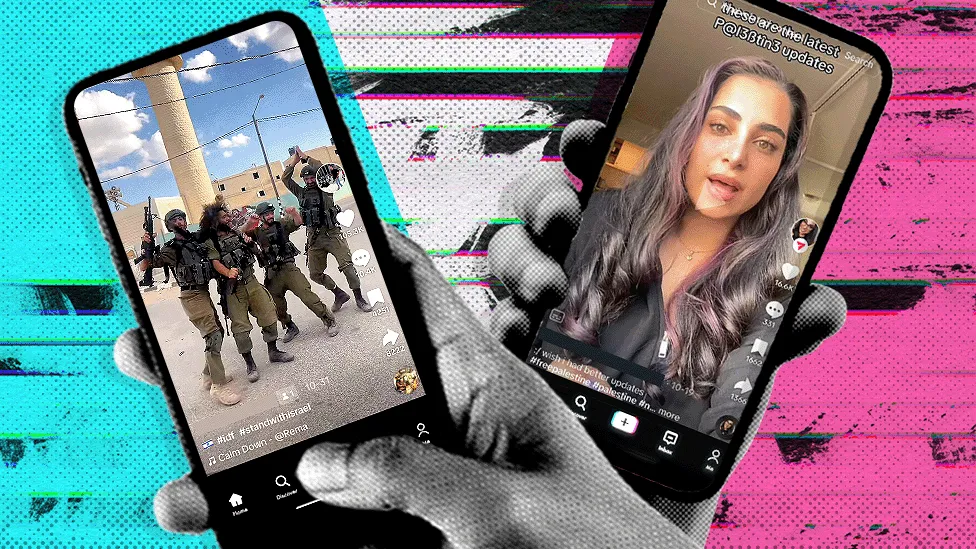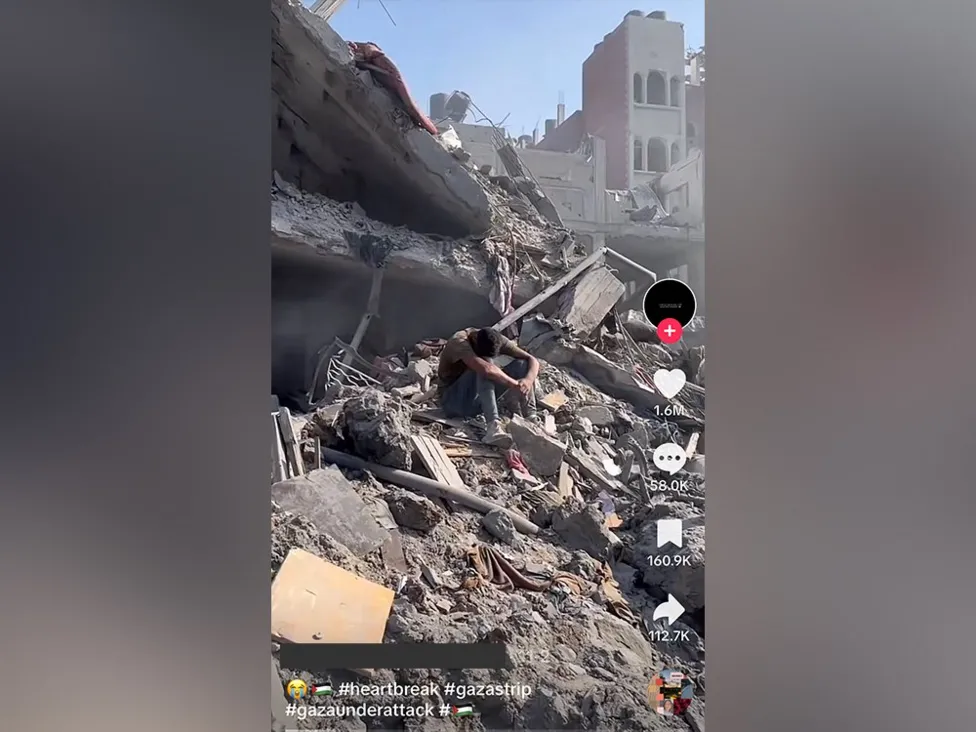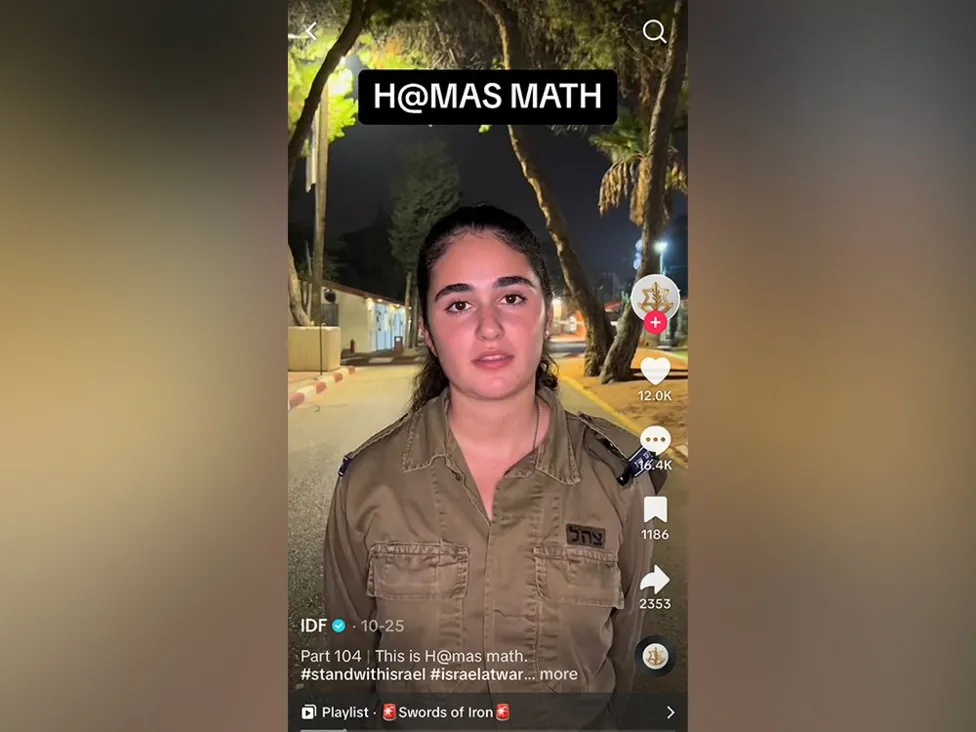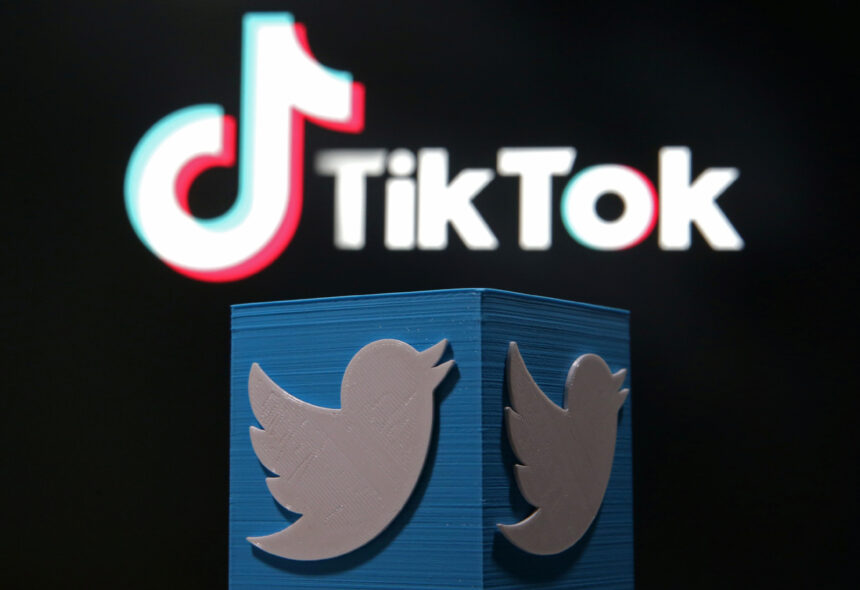Youth versus age, TikTok versus X platform, pro-Israeli versus pro-Palestinian—your social media feeds are distinctly yours. Could they be moulding your perspective on the Israel-Gaza conflict?

Upon entering my TikTok feed, two consecutive videos roll. The first displays four Israeli soldiers dancing with guns against a blue sky, while the next features a young woman delivering a pro-Palestinian message from her bedroom. TikTok’s algorithm shapes my video recommendations based on which of these two I watch till the end, tailoring content to my preferences. Similar algorithms are at play across various social media platforms, guiding users toward increasingly divisive Israel-Gaza content that reinforces existing views and biases.
This is significant because social media discussions can influence public opinion, normalizing rhetoric that spills over into offline spaces like protests. In the UK, social media appears to have mobilized many typically apolitical individuals into action. Layla Moran, a Liberal Democrat MP with Palestinian roots, notes a “huge influx” of messages, particularly from young people, advocating for a ceasefire. Moran attributes this surge in activism to “TikTok videos and Instagram reels shared over WhatsApp.”
Liberal Democrat MP Layla Moran, whose mother is Palestinian, tells me she and other politicians are receiving a “huge influx” of messages, including from young people urging a ceasefire. They seem inspired to act because of “TikTok videos and Instagram reels shared over WhatsApp.” “Anything that is too slick, their initial instinct seems to be – don’t trust it. They expect it to be disinformation,” the MP for Oxford West and Abingdon says.

Conservative MP Andrew Percy, the vice chair of the Conservative Friends of Israel group, says the war has “garnered less engagement and communication from residents” in his constituency than other issues. However, he says: “Much of the content being shared is problematically antisemitic. That’s been a real problem long before this conflict – and this time, social media has made that happen quickly.”
What’s gaining the most traction on TikTok and among whom?
My TikTok feed is frequently filled with videos that are either staunchly pro-Israel or pro-Palestinian, often involving users critiquing each other’s content. Notably, pro-Palestinian content appears to be more popular among Gen Z users, born between 1997 and 2012.
On TikTok, videos tagged with “istandwithisrael” have accumulated over 240 million views, while those with “istandwithpalestine” have garnered more than 870 million views. This trend aligns with patterns observed on other video-centric platforms popular with younger audiences.

The contrast between the most popular content supporting each side is striking. Videos from bloggers on the ground in Gaza and pro-Palestinian users discussing the Israel-Gaza conflict from their bedrooms elicit the most positive reactions from younger users. In contrast, content from soldiers with the Israeli Defense Forces tends to be more polished and curated, attempting to align with viral TikTok trends.








